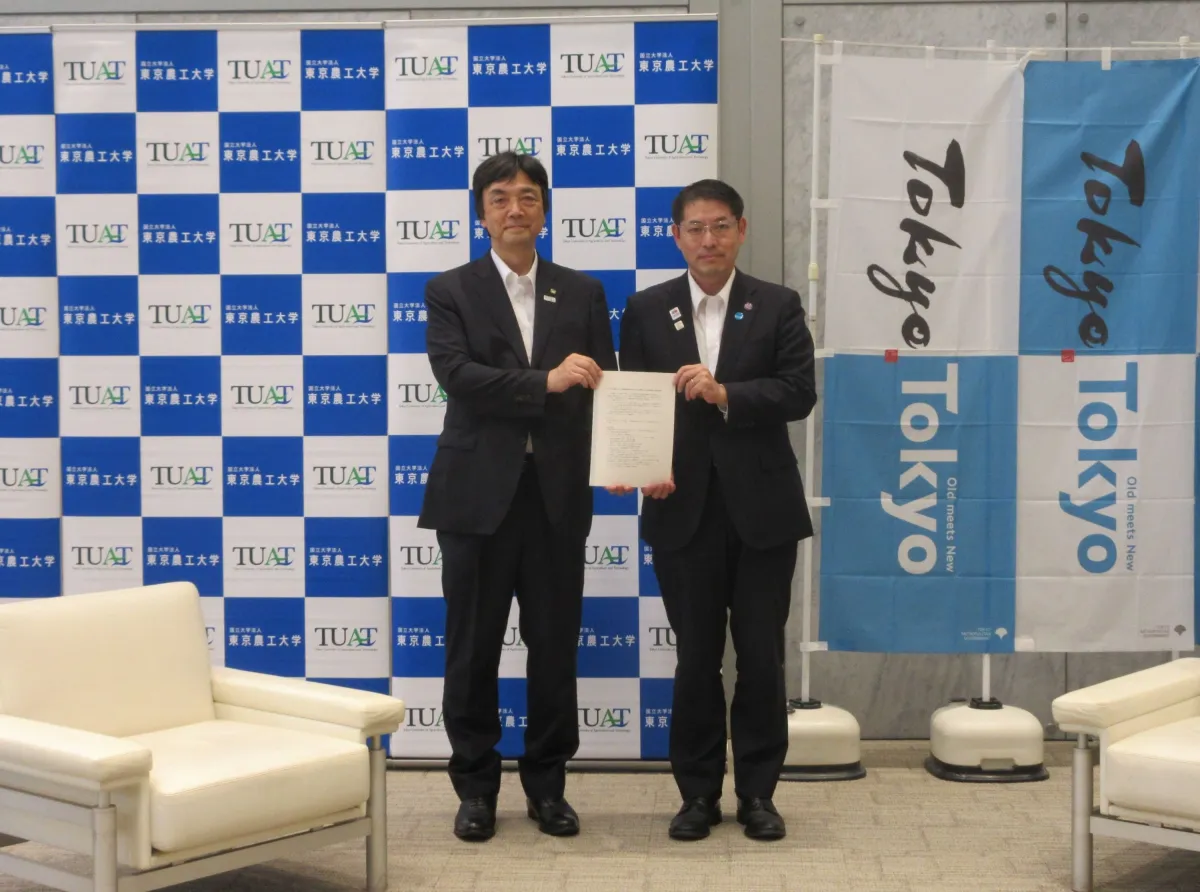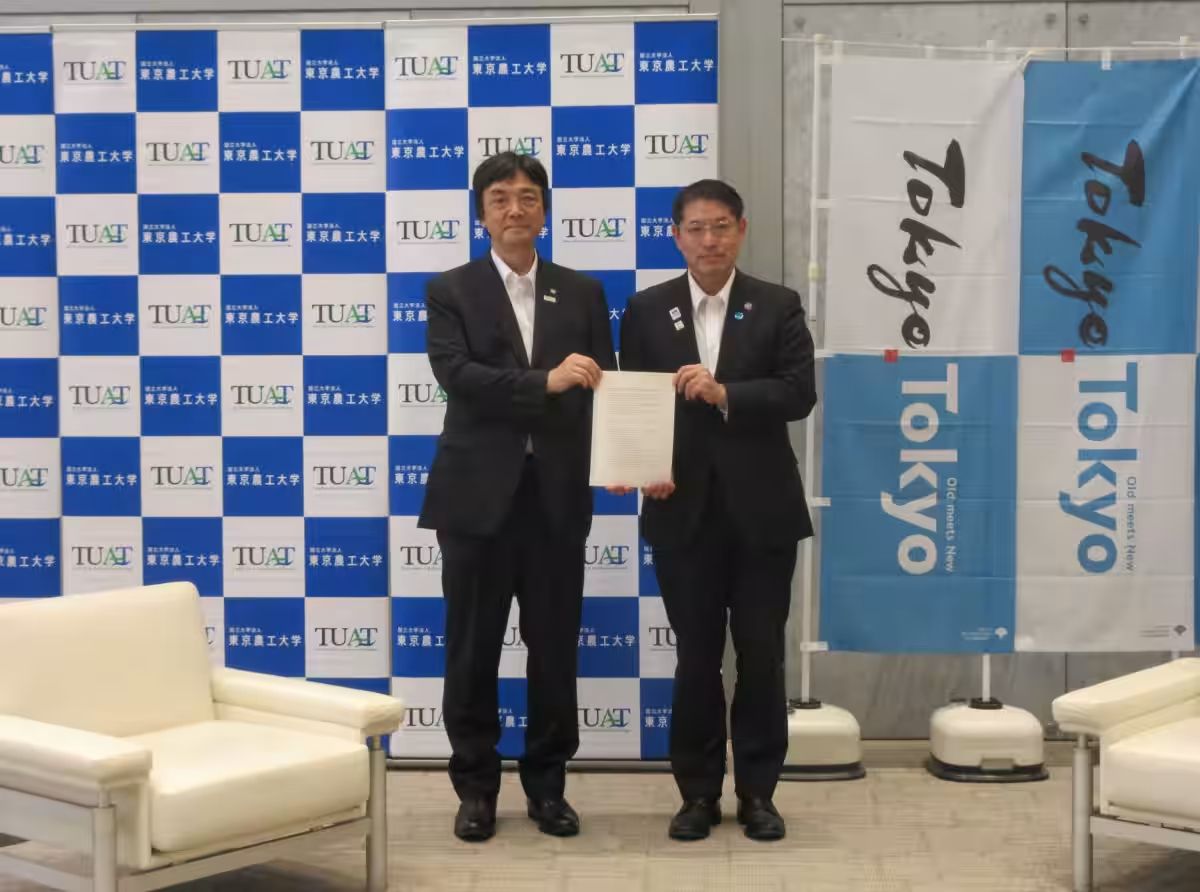

Tokyo and Tokyo University of Agriculture and Technology Join Forces for Urban Agriculture Innovation
Collaboration for Sustainable Urban Agriculture in Tokyo
In a significant step towards fostering sustainable urban agriculture, Tokyo has partnered with the Tokyo University of Agriculture and Technology (TUAT). Recently, both entities signed a formal agreement to collaborate on creating a new model of urban agriculture designed to address various pressing challenges, including food security, environmental change, and declining agricultural workforce.
The Importance of This Partnership
As noted by Shinichi Tanaka, Director General of the Bureau of Industry and Labor of Tokyo, the city is facing a concerning decline in the number of agricultural workers. The average age of individuals involved in agriculture has surpassed 65 years, which emphasizes the pressing need for innovative solutions to sustain agricultural productivity. This collaboration aims to enhance the role of digital technologies in agriculture—specifically, the adoption of smart farming techniques that will optimize production efficiency and resource utilization.
Moreover, Tanaka highlighted the city’s commitment to supporting initiatives that leverage technology to streamline agriculture practices. The agreement marks a pivotal point in Tokyo's approach to integrating advanced agricultural technologies with local practices, ultimately promoting sustainability and safety in the food sector.
A Strong Commitment from TUAT
Kazuharu Chiba, President of TUAT, expressed his enthusiasm in collaborating with Tokyo to forge a pioneering urban agricultural model. Reflecting on the global challenges of climate change and loss of biodiversity, Chiba emphasized the urgency of establishing sustainable food production systems within urban settings. TUAT is renowned for its interdisciplinary research, collaborating across diverse fields such as agriculture, engineering, and life sciences. The partnership promises to yield innovative practices that could set a precedent for “Tokyo Model” in urban agriculture, sharing successful outcomes both domestically and internationally.
Addressing Global Challenges
At a recent press conference, Tokyo’s governor reiterated the need to enhance the agricultural sector through digital transformation (DX). With demographic challenges, fluctuating global conditions, and evolving climate dynamics, the agricultural sector is under unprecedented pressure. The governor pointed out that many agricultural positions remain unfilled, and food self-sufficiency must be prioritized alongside environmental considerations.
By integrating digital technologies into agriculture, the city aims to enhance production quality and quantity while ensuring the safety and comfort of its residents’ food supply. The enhancement of AgriTech—merging agriculture with tech advancements—will play a crucial role in developing a unique urban agricultural model considerate of Tokyo's distinct needs.
Next Steps in Implementation
A key part of the collaboration involves initiating feasibility studies that explore smart agricultural methodologies and poultry farming practices, beginning next month. The agreement also plans for the establishment of a consortium involving TUAT to monitor the latest technological trends and market needs to formulate informed policies moving forward.
Overview of the Agreement
1. Name of the Agreement
The agreement formalizes collaborative efforts towards developing a new model for urban agriculture with the university.
2. Main Outline of Collaborative Efforts
The university will conduct research with a focus on:
- Understanding needs through stakeholder interviews.
- Researching global policies and technological trends.
- Validating business models and exploring funding methods.
- Assessing innovation and intellectual property opportunities.
Tokyo will fund the necessary expenses related to these initiatives.
3. Date of Agreement Signing
The agreement was officially signed on July 18, 2022.
About Tokyo University of Agriculture and Technology
Founded in 1949, TUAT is home to approximately 5,945 students, including graduate students, across its two campuses located in Fuchu and Koganei.
Through this collaboration, both Tokyo and TUAT are set to enhance urban agriculture, tackle global challenges, and construct a resilient and innovative system for future generations.

Topics Other)










【About Using Articles】
You can freely use the title and article content by linking to the page where the article is posted.
※ Images cannot be used.
【About Links】
Links are free to use.